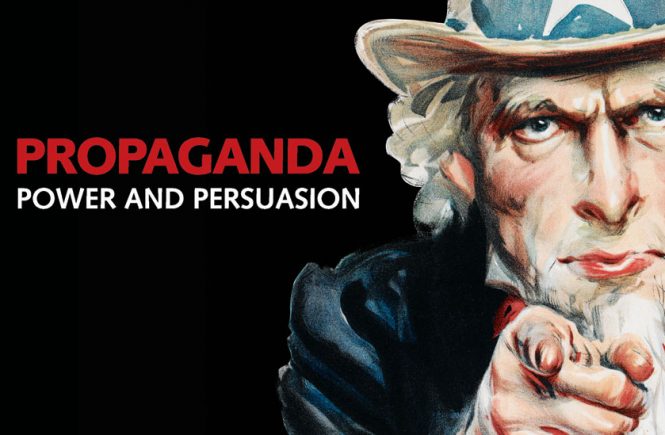Lasswell and Lippmann’s propaganda theories seemed to carry the weight of realworld proof—the globe had been engulfed by a devastating world war, The War to End All Wars in fact, yet global turmoil continued to rage. These conflicts were infused with sophisticated and apparently successful propaganda. Yet there was opposition. One prominent critic of propaganda theory was philosopher John Dewey. In a series of lectures (Dewey, 1927), he outlined his objections to Lippmann’s views. Throughout his long career, Dewey was a tireless and prolific defender of public education as the most effective means of defending democracy against totalitarianism. He refused to accept the need for a technocracy that would use scientific methods to protect people from themselves. Rather, he argued that people could learn to defend themselves if they were only taught the correct defenses. He asserted that even rudimentary public education could enable people to resist propaganda methods. Dewey “took violent issue” with Lippmann’s “trust in the beneficence of elites.” “‘A class of experts,’ Dewey argued, ‘is inevitably too removed from common interests as to become a class of private interests and private knowledge.’… He saw democracy as less about information than conversation. The media’s job, in Dewey’s conception, was ‘to interest the public in the public interest’” (Alterman, 2008, p. 10).
Dewey’s critics saw him as an idealist who talked a lot about reforming education without actually doing much himself to implement concrete reforms (Altschull, 1990, p. 230). Dewey did no better when it came to reforming the media. He argued that newspapers needed to do more than simply serve as bulletin boards for information about current happenings. He issued a challenge to journalists to do more to stimulate public interest in politics and world affairs—to motivate people to actively seek out information and then talk about it with others. Newspapers should serve as vehicles for public education and debate. They should focus more on ideas and philosophy and less on descriptions of isolated actions. They should teach critical thinking skills and structure public discussion of important issues. His efforts to found such a publication never got very far, however. Dewey based his arguments on Pragmatism, a school of philosophical theory emphasizing the practical function of knowledge as an instrument for adapting to reality and controlling it. We’ll take a closer look at this theory in Chapter 11. James Carey (1989, pp. 83–84) contends that Dewey’s ideas have continuing value. He argues that Dewey anticipated many of the concerns now being raised by cultural studies theories. And as you’ll also read in Chapter 11, Dewey’s belief that educating people to think critically about media content and how they use it is at the heart of the media literacy movement and current concerns about public education and public discourse.
In one very important respect, Dewey’s ideas about the relationship between communities and media were quite innovative. Lasswell and Lippmann saw media as external agencies, as conveyor belts delivering quantities of information to isolated audience members. In Chapter 7 we will consider Lasswell’s classic linear model of mass communication: who says what to whom through what medium with what effect. Dewey believed models like this were far too simplistic. They ignored the fact that effective media must be well integrated into the communities they serve; media are at the center of the complex network of relationships that define a community. Media should be understood not as external agents but as servants that facilitate public discussion and debate, as guardians and facilitators of the public forum in which democratic politics are conducted. Dewey believed that communities, not isolated individuals, use communication (and the media of communication) to create and maintain the culture that bonds and sustains them. When media assume the role of external agents and work to manipulate the “pictures in people’s heads,” they lose their power to serve as credible facilitators and guardians of public debate; they become just another competitor for our attention. The potentially productive interdependence between the community and media is disrupted, and the public forum itself is likely to be destroyed. This argument concerning the disconnection of media from communities is now of considerable interest (see Chapters 10 and 11) and foreshadows contemporary debate over the proper role of media in communities.
.
INSTANT ACCESS Propaganda Theory
Strengths:
1. Is first systematic theory of mass communication
2. Focuses attention on why media might have powerful effects
3. Identifies personal, social, and cultural factors that can enhance media’s power to have effects
4. Focuses attention on the use of campaigns to cultivate symbols
Weaknesses
1. Underestimates abilities of average people to evaluate messages
2. Ignores personal, social, and cultural factors that limit media effects
3. Overestimates the speed and range of media effects
